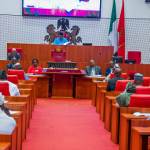French President Emmanuel Macron has confirmed that Palestinian President Mahmoud Abbas will attend the much-anticipated Gaza peace summit in Sharm el-Sheikh, Egypt, even as Israeli Prime Minister Benjamin Netanyahu has announced he will not be participating.
The summit, hosted by Egyptian President Abdel Fattah al-Sisi and U.S. President Donald Trump, aims to consolidate the ceasefire in Gaza, coordinate humanitarian relief, and map out long-term governance and reconstruction efforts following the months-long conflict between Israel and Hamas.
Macron, speaking from Paris, said Abbas’s attendance “marks an important step towards ensuring the Palestinian Authority’s rightful place in the conversation about Gaza’s future.” He added that the international community “must recognize the legitimate role of the Palestinian Authority in rebuilding and leading its people.”
Abbas’s participation comes at a time when the Palestinian Authority (PA) is under pressure to reassert itself politically, after years of diminished influence in Gaza. The PA, which governs parts of the occupied West Bank, has struggled for legitimacy since Hamas seized control of Gaza in 2007.
A senior Palestinian official said Abbas plans to use the summit to “demand a comprehensive reconstruction plan, full international guarantees, and a clear pathway to a two-state solution.”
Netanyahu Declines Attendance
In sharp contrast, Israeli Prime Minister Benjamin Netanyahu will not be attending the same summit. His office confirmed that the Prime Minister turned down the invitation due to the Jewish holiday of Simchat Torah, which begins this weekend.
“The Prime Minister appreciates President Trump and President al-Sisi for the invitation, but the timing coincides with the start of Simchat Torah,” Netanyahu’s office said in a statement released in Jerusalem.
Netanyahu’s absence has drawn mixed reactions both within Israel and abroad. Some analysts view it as a missed opportunity for Israel to engage directly in shaping the post-conflict framework for Gaza. Others, however, argue that his nonattendance is largely symbolic, as Israel continues to play a significant behind-the-scenes role through diplomatic and intelligence channels.
Israeli political observers say the decision also reflects Netanyahu’s balancing act managing domestic religious sensitivities while maintaining Israel’s diplomatic engagement through secondary representation.
Despite Netanyahu’s absence, Israel’s diplomatic delegation and senior security officials are expected to attend the summit’s closed-door sessions, ensuring the country’s input remains part of the broader discussion.
Summit Agenda and Global Stakes
The Sharm el-Sheikh summit brings together over 20 world leaders, including representatives from the United Nations, European Union, Arab League, and African Union. Its central objectives include:
Establishing a framework for Gaza’s reconstruction.
Coordinating humanitarian aid and civilian reintegration.
Discussing political stability and the future governance of Gaza.
Preventing renewed violence and ensuring long-term security guarantees for both Israelis and Palestinians.
Egyptian President Abdel Fattah al-Sisi, opening the summit, urged participants to “turn this ceasefire into a permanent peace built on justice, accountability, and the right of every people to live in safety.”
U.S. President Donald Trump, who co-chairs the summit, emphasized the importance of “shared responsibility in rebuilding Gaza, restoring hope to its people, and ensuring no return to violence.”
Abbas’s Strategic Opportunity
For Abbas, the summit offers a rare diplomatic platform to strengthen the PA’s international standing. His administration hopes to secure commitments from donor nations and to reestablish the PA as a viable governing entity in Gaza, particularly as international partners increasingly discuss a “post-Hamas” Gaza scenario.
Political analyst Hanan al-Khatib, speaking from Ramallah, said, “Abbas needs this moment not just for symbolism, but to prove that the Palestinian Authority is capable of leading, reforming, and representing its people again.”
However, challenges remain. The PA’s influence in Gaza is still limited, internal Palestinian divisions persist, and public confidence in Ramallah’s leadership has waned over the years.
Netanyahu’s Calculated Absence
Netanyahu’s nonattendance, while officially tied to a religious holiday, also reflects his cautious approach to multilateral diplomacy. Critics suggest the decision may have been influenced by political pressures within his coalition, as right-wing factions remain wary of international summits that may revive discussions on the two-state solution.
Diplomatic sources told Reuters that Israel will continue to engage indirectly, ensuring that “its strategic and security interests are safeguarded” as reconstruction plans unfold.
A Divided Symbolism
The contrasting choices by Abbas and Netanyahu one attending, the other abstaining symbolize the broader divide defining Middle East diplomacy: a Palestinian leadership seeking renewed legitimacy, and an Israeli government prioritizing internal cohesion and controlled engagement.
As talks continue in Sharm el-Sheikh, global attention remains fixed on whether these meetings can yield more than declarations and if the fragile path to peace can endure once the summit concludes.







